6 great features you're losing with the Xbox One's DRM changes
The next-generation takes a step back
The internet has spoken?
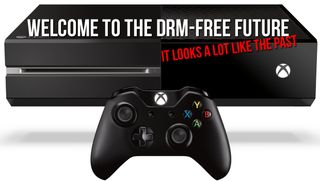
After Microsoft revealed that the Xbox One would bring 24-hour internet checks and game rental blocking to the next-generation, consumers revolted. #XBOXGOHOME was chanted across the internets and hundreds of thousands marched through the streets of Twitter, crying out in protest. People were furious. The age of innocence was over, because of greed and corporations and cowardice and everything else people decided to rally behind.
But, today, Microsoft pulled a 180. Don Mattrick, bless his soul, wrote a heartfelt letter apologizing for misreading the bones Microsoft's Voodoo Priestesses tossed onto the table of their board room. He told us that our feedback mattered, and that the Xbox One would have an ironic day-one patch to remove all of the features gamers hated. But, in that, gamers struck a deal with the devil. Sure, you're getting all the stuff you wanted, but you're also going to be losing things you didn't even know you could've had. Things that could have made the concept of "used games" a thing of the past, and things that may have truly moved the industry forward.
Your game library won't be digital
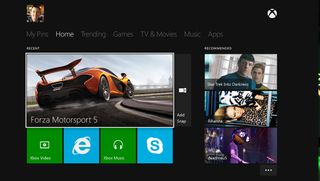
Steam is awesome. It keeps games organized, creating a digital library of all of the PC games you've purchased, even if you picked them up via retail. When it was revealed that the Xbox One would be following with a similar system, we were so happy we felt like we were almost ready to abandon our ties to used games and being able to play games offline. Just put a game into your Xbox One, redeem a code, install it, and bam--it's in your system. Lose your copy of Halo 5? Your old Grand Theft Auto VI disc is scratched to hell? Whatever, just download it again. It's all digital. It's all in the cloud.
The idea that every game, digital or not, would be absorbed into a digital library is fantastic. And now it's gone. With the changes to the Xbox One's systems--namely the ones that allow used games and game rentals--it isn't as easy to tie a game to an account. Your digital games will still be digital, just as they are with the Xbox 360, but games you buy in the store will be locked onto the disc.
You can't share your library with 10 family members

Another benefit of the constant internet connection (and digital game library) was the ability to share games with up to 10 family members. While the details weren't laid out perfectly, the jist of it was that you'd have a list of other people that could essentially borrow a game at any time. If you had a copy of Call of Duty: Ghosts on your Xbox One but no one was playing it at the time, your cousin in Missouri could download and play it. And your uncle in Minnesota could be playing your copy of Ryse at the very same time. Sadly, this feature is being cut as well.
But... we actually don't understand why. Sure, your retail, disc-based games couldn't apply--they wouldn't be actively tied to your account--but what about your digital downloads? And why couldn't shared games work with 10 family members as long as they connect every 24 hours? There's always a chance Microsoft could add this back into the mix, but as of now, it's gone.
There's no gifting purchased games online
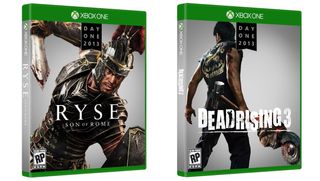
If you want to give an Xbox One game to a friend when the system comes out in November, you can just give an Xbox One game to a friend. Like, you'll be able to drive to their house, hand them a game, and then drive away. Easy, right? Well, it was going to be easier at one point. Originally, Microsoft was going to allow you to transfer your digital license to someone who has been on your friend list for 30 days. This essentially meant that you'd be able to trade games with friends online. There were limitations, of course, but it was a cool idea.
Sign up to the GamesRadar+ Newsletter
Weekly digests, tales from the communities you love, and more
Thanks to the newly-lifted restrictions, this is no longer an option. Instead, the future is going to look a lot like the current-generation does. This is cool, but we liked seeing Microsoft take a step forward and embracing the digital future. Again, we see no reason why this couldn't still work for digital titles, since things bought through Xbox Live are tied to your account, but no matter--it's dead, for now.
The disc needs to be in the Xbox One even if you've installed game
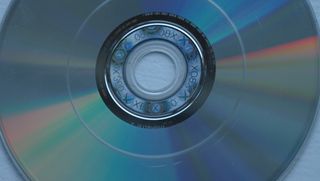
The upside of needing to register and install every game you purchase at retail was the fact that, once it was registered and installed, you didn't need the disc anymore. You could throw it back in its box, toss it in a closet, and forget about it. It didn't need to be in the system--meaning the console would run quieter--and it didn't need to be checked in on ever again.
But now, because used games and stuff, you need to have the disc in at all times. Otherwise there's nothing to stop you from installing a game and then returning it, or giving it to a few friends so they can install it, too. It's a minor inconvenience, but an inconvenience nevertheless.
It makes cloud computing less attractive for developers
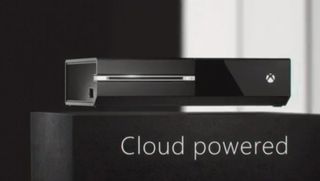
During the Xbox One's reveal, Microsoft made a big deal out of the fact that it's got 300,000 servers at the ready to to help offload some resource-intensive processes normally crunched by console hardware. Granted, we were never really given any specifics as to how this will affect your games aside from "making them better," but it does free up resources, which could be put to use improving some aspect of a game.
Multiplayer games will undoubtedly still tap into Microsoft's cloud computing service, as will online applications such as Netflix or HBO Go, making for a smoother experience. But what about single-player games? With developers having no guarantee that Xbox One users have an internet connection, committing to the power of cloud computing might be a harder sell, as doing so would risk missing out on potential sales.
There's less potential for game price drops
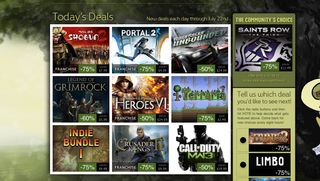
When Microsoft announced that games would be tied to your Xbox Live account--not the physical disc--console gamers lamented the inevitable death of game rentals and trading. But PC gamers have lived in such an ecosystem for years, relying on license-based services such as Steam and Origin. While the downside of this system includes the very concerns many console gamers decried, the upswing is that it creates an environment in which game sales are frequent and substantial.
Now, we can't say with certainty that Microsoft's license-based plans would've led to cheaper prices for games, but it's not difficult to imagine the potential. Just look at Steam--every other week, there's a brand new game on sale for, say, $40. Because games will remain tied to physical copies, we'll likely see the current retail pricing strategies remain intact.
The end of days

There are, obviously, benefits to the Xbox's reversal. The system now supports game rentals, used game sales, and doesn't require an online check in. In other words, it's just like your Xbox 360, except with better graphics and a Kinect that's always staring at you. If that's what you were fighting for, then you've won this battle--otherwise, this move might be a step back for the industry, no matter how bad it seemed at first.
And if you're looking for more, check out E3's most shocking moments and Let's talk: What did you think of E3?.
GamesRadar+ was first founded in 1999, and since then has been dedicated to delivering video game-related news, reviews, previews, features, and more. Since late 2014, the website has been the online home of Total Film, SFX, Edge, and PLAY magazines, with comics site Newsarama joining the fold in 2020. Our aim as the global GamesRadar Staff team is to take you closer to the games, movies, TV shows, and comics that you love. We want to upgrade your downtime, and help you make the most of your time, money, and skills. We always aim to entertain, inform, and inspire through our mix of content - which includes news, reviews, features, tips, buying guides, and videos.
Most Popular



